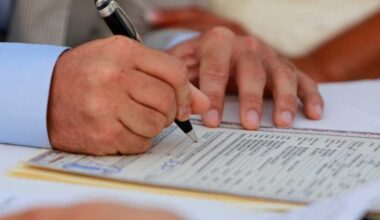Section 498A of The Indian Penal Code:
498A. Husband or relative of husband of a woman subjecting her to cruelty.—Whoever, being the husband or the relative of the husband of a woman, subjects such woman to cruelty shall be pun-ished with imprisonment for a term which may extend to three years and shall also be liable to fine. Explanation.—For the purpose of this section, “cruelty” means—
(a) any wilful conduct which is of such a nature as is likely to drive the woman to commit suicide or to cause grave injury or danger to life, limb or health (whether mental or physical) of the woman; or
(b) harassment of the woman where such harassment is with a view to coercing her or any person related to her to meet any unlawful demand for any property or valuable security or is on account of failure by her or any person related to her to meet such demand.
This section was inserted by the criminal law Second Amendment Act 1983. This section opened the doors of Justice for women who has suffer at the hands of her husband and relatives. This section is both cognizable & non-bailable and works on the complaint of the woman and placing the man behind bars. The abuse of this section is rapidly increasing. But this section defines the limits of the meaning of cruelty so as the section is not misused for frivolous cases by the women. In this we will discuss the view of the supreme court on misuse of Section 498A IPC.
In the case of Sushil Kumar Sharma Vs. Union of India (2005) 6 SCC 281, the Apex Court remarked that the object of the provision is prevention of the dowry menace. But as has been rightly contended by the petitioner many instances have come to light where the complaints are not bona fide and have been filed with oblique motive. The Court opined that merely because the provision is constitutional and intra vires, does not give a licence to unscrupulous persons to wreak personal vendetta or unleash harassment. It may, therefore, become necessary for the legislature to find out ways how the makers of frivolous complaints or allegations can be appropriately dealt with. Till then the courts have to take care of the situation within the existing framework. As noted above the object is to strike at the roots of dowry menace. But by misuse of the provision a new legal terrorism can be unleashed.
In Rajesh Sharma and Others Vs. State of U.P (AIR 2017 SC 3869) the SupremeCourt, in order to prevent Misuse of Section 498A, Gave a number of direction such as:
(a) That there has been a growing tendency to abuse the said provision to rope in all the relatives including parents of advanced age, minor children, siblings, grand-parents and uncles on the strength of vague and exaggerated allegations without there being any verifiable evidence of physical or mental harm or injury which several times results in harassment and even arrest of innocent family members, including women and senior citizens.
(b) Constitution of one or more Family Welfare Committees in each District by the District Legal Services Authority. The Committees may be constituted out of para legal volunteers/social workers/retired persons/wives of working officers/other citizens who may be found suitable and willing. The Committee shall look into every complaint filed in the District under Section 498A. Thereafter the Committee shall interact with concerned parties and report shall be submitted by the Committee to the Legal Services Authority within one month from the date of receipt of complaint.
(c) The Court further directed that no arrest in the matter shall be made unless the Committee’s report is received.
(d) The Court has further directed that if a bail application is filed in the case, then the same shall be attempted to be decided on the same day. The Court also clarified that recovery of disputed dowry items may not by itself be a ground for denial of bail if maintenance or other rights of wife/minor children can otherwise be protected.
(e) Personal appearance of all family members and particularly outstation members may not be required and the trial court ought to grant exemption from personal appearance or permit appearance by video conferencing without adversely affecting progress of the trial.






